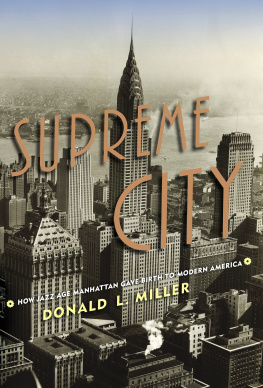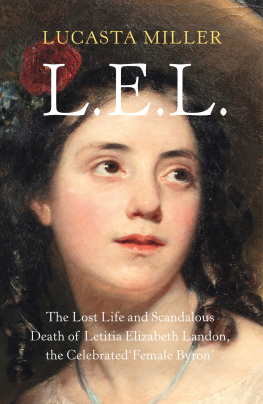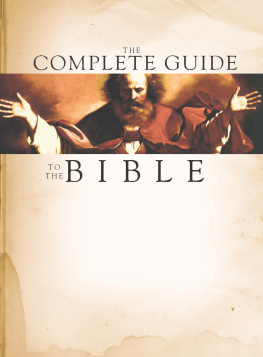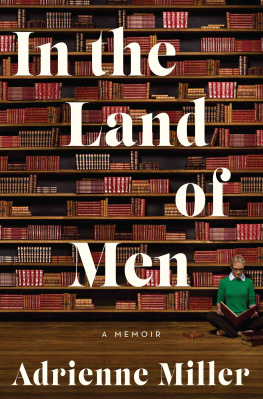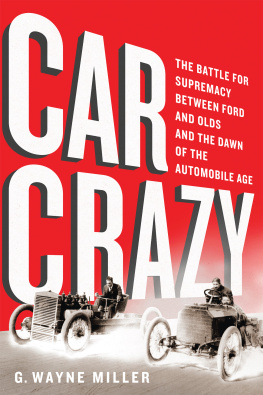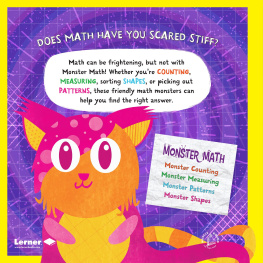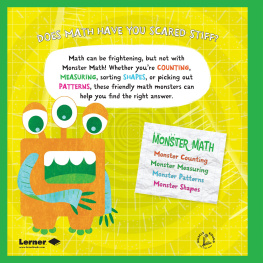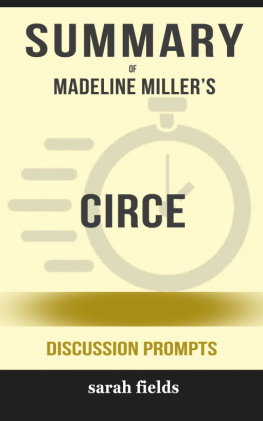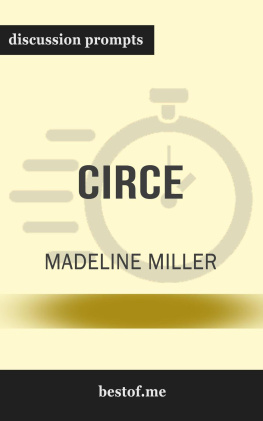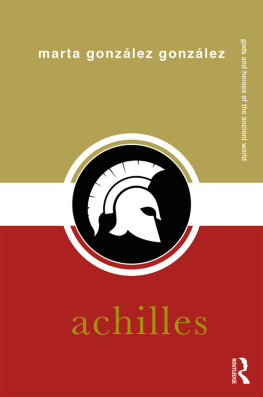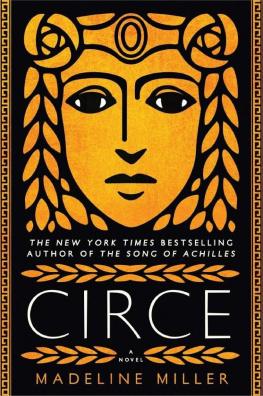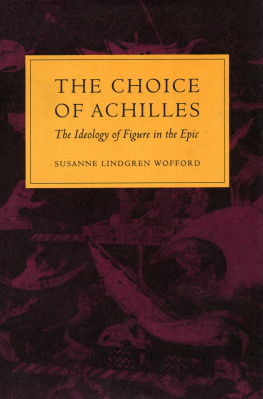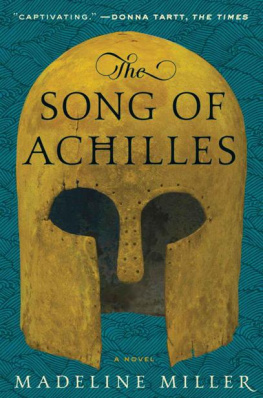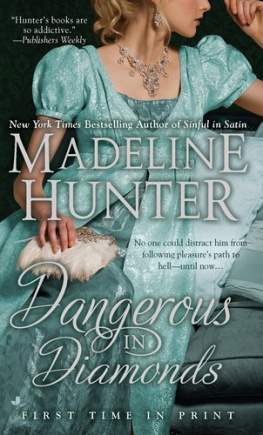Miller, Madeline - The Song of Achilles
Here you can read online Miller, Madeline - The Song of Achilles full text of the book (entire story) in english for free. Download pdf and epub, get meaning, cover and reviews about this ebook. genre: History. Description of the work, (preface) as well as reviews are available. Best literature library LitArk.com created for fans of good reading and offers a wide selection of genres:
Romance novel
Science fiction
Adventure
Detective
Science
History
Home and family
Prose
Art
Politics
Computer
Non-fiction
Religion
Business
Children
Humor
Choose a favorite category and find really read worthwhile books. Enjoy immersion in the world of imagination, feel the emotions of the characters or learn something new for yourself, make an fascinating discovery.

The Song of Achilles: summary, description and annotation
We offer to read an annotation, description, summary or preface (depends on what the author of the book "The Song of Achilles" wrote himself). If you haven't found the necessary information about the book — write in the comments, we will try to find it.
The Song of Achilles — read online for free the complete book (whole text) full work
Below is the text of the book, divided by pages. System saving the place of the last page read, allows you to conveniently read the book "The Song of Achilles" online for free, without having to search again every time where you left off. Put a bookmark, and you can go to the page where you finished reading at any time.
Font size:
Interval:
Bookmark:
THE SONG OF ACHILLES
Madeline Miller

Dedication
To my mother, Madeline, and Nathaniel
Contents
Cover
Title Page
Dedication
Chapter One
Chapter Two
Chapter Three
Chapter Four
Chapter Five
Chapter Six
Chapter Seven
Chapter Eight
Chapter Nine
Chapter Ten
Chapter Eleven
Chapter Twelve
Chapter Thirteen
Chapter Fourteen
Chapter Fifteen
Chapter Sixteen
Chapter Seventeen
Chapter Eighteen
Chapter Nineteen
Chapter Twenty
Chapter Twenty-One
Chapter Twenty-Two
Chapter Twenty-Three
Chapter Twenty-Four
Chapter Twenty-Five
Chapter Twenty-Six
Chapter Twenty-Seven
Chapter Twenty-Eight
Chapter Twenty-Nine
Chapter Thirty
Chapter Thirty-One
Chapter Thirty-Two
Chapter Thirty-Three
Character Glossary
Acknowledgments
About the Author
Credits
Copyright
About the Publisher
Chapter One
MY FATHER WAS A KING AND THE SON OF KINGS. HE was a short man, as most of us were, and built like a bull, all shoulders. He married my mother when she was fourteen and sworn by the priestess to be fruitful. It was a good match: she was an only child, and her fathers fortune would go to her husband.
He did not find out until the wedding that she was simple. Her father had been scrupulous about keeping her veiled until the ceremony, and my father had humored him. If she was ugly, there were always slave girls and serving boys. When at last they pulled off the veil, they say my mother smiled. That is how they knew she was quite stupid. Brides did not smile.
When I was delivered, a boy, he plucked me from her arms and handed me to a nurse. In pity, the midwife gave my mother a pillow to hold instead of me. My mother hugged it. She did not seem to notice a change had been made.
Quickly, I became a disappointment: small, slight. I was not fast. I was not strong. I could not sing. The best that could be said of me was that I was not sickly. The colds and cramps that seized my peers left me untouched. This only made my father suspicious. Was I a changeling, inhuman? He scowled at me, watching. My hand shook, feeling his gaze. And there was my mother, dribbling wine on herself.
I AM FIVE when it is my fathers turn to host the games. Men gather from as far as Thessaly and Sparta, and our storehouses grow rich with their gold. A hundred servants work for twenty days beating out the racing track and clearing it of stones. My father is determined to have the finest games of his generation.
I remember the runners best, nut-brown bodies slicked with oil, stretching on the track beneath the sun. They mix together, broad-shouldered husbands, beardless youths and boys, their calves all thickly carved with muscle.
The bull has been killed, sweating the last of its blood into dust and dark bronze bowls. It went quietly to its death, a good omen for the games to come.
The runners are gathered before the dais where my father and I sit, surrounded by prizes we will give to the winners. There are golden mixing bowls for wine, beaten bronze tripods, ash-wood spears tipped with precious iron. But the real prize is in my hands: a wreath of dusty-green leaves, freshly clipped, rubbed to a shine by my thumb. My father has given it to me grudgingly. He reassures himself: all I have to do is hold it.
The youngest boys are running first, and they wait, shuffling their feet in the sand for the nod from the priest. Theyre in their first flush of growth, bones sharp and spindly, poking against taut skin. My eye catches on a light head among dozens of dark, tousled crowns. I lean forward to see. Hair lit like honey in the sun, and within it, glints of goldthe circlet of a prince.
He is shorter than the others, and still plump with childhood in a way they are not. His hair is long and tied back with leather; it burns against the dark, bare skin of his back. His face, when he turns, is serious as a mans.
When the priest strikes the ground, he slips past the thickened bodies of the older boys. He moves easily, his heels flashing pink as licking tongues. He wins.
I stare as my father lifts the garland from my lap and crowns him; the leaves seem almost black against the brightness of his hair. His father, Peleus, comes to claim him, smiling and proud. Peleus kingdom is smaller than ours, but his wife is rumored to be a goddess, and his people love him. My own father watches with envy. His wife is stupid and his son too slow to race in even the youngest group. He turns to me.
That is what a son should be.
My hands feel empty without the garland. I watch King Peleus embrace his son. I see the boy toss the garland in the air and catch it again. He is laughing, and his face is bright with victory.
BEYOND THIS, I remember little more than scattered images from my life then: my father frowning on his throne, a cunning toy horse I loved, my mother on the beach, her eyes turned towards the Aegean. In this last memory, I am skipping stones for her, plink, plink, plink, across the skin of the sea. She seems to like the way the ripples look, dispersing back to glass. Or perhaps it is the sea itself she likes. At her temple a starburst of white gleams like bone, the scar from the time her father hit her with the hilt of a sword. Her toes poke up from the sand where she has buried them, and I am careful not to disturb them as I search for rocks. I choose one and fling it out, glad to be good at this. It is the only memory I have of my mother and so golden that I am almost sure I have made it up. After all, it was unlikely for my father to have allowed us to be alone together, his simple son and simpler wife. And where are we? I do not recognize the beach, the view of coastline. So much has passed since then.
Chapter Two
IWAS SUMMONED TO THE KING. I REMEMBER HATING THIS, the long walk up the endless throne room. At the front, I knelt on stone. Some kings chose to have rugs there for the knees of messengers who had long news to tell. My father preferred not to.
King Tyndareus daughter is finally ready for marriage, he said.
I knew the name. Tyndareus was king of Sparta and held huge tracts of the ripest southern lands, the kind my father coveted. I had heard of his daughter too, rumored to be the fairest woman in our countries. Her mother, Leda, was said to have been ravished by Zeus, the king of the gods himself, disguised as a swan. Nine months later, her womb yielded two sets of twins: Clytemnestra and Castor, children of her mortal husband; Helen and Polydeuces, the shining cygnets of the god. But gods were known to be notoriously poor parents; it was expected that Tyndareus would offer patrimony to all.
I did not respond to my fathers news. Such things meant nothing to me.
My father cleared his throat, loud in the silent chamber. We would do well to have her in our family. You will go and put yourself forth as a suitor. There was no one else in the hall, so my startled huff of breath was for his ears alone. But I knew better than to speak my discomfort. My father already knew all that I might say: that I was nine, unsightly, unpromising, uninterested.
Next pageFont size:
Interval:
Bookmark:
Similar books «The Song of Achilles»
Look at similar books to The Song of Achilles. We have selected literature similar in name and meaning in the hope of providing readers with more options to find new, interesting, not yet read works.
Discussion, reviews of the book The Song of Achilles and just readers' own opinions. Leave your comments, write what you think about the work, its meaning or the main characters. Specify what exactly you liked and what you didn't like, and why you think so.

